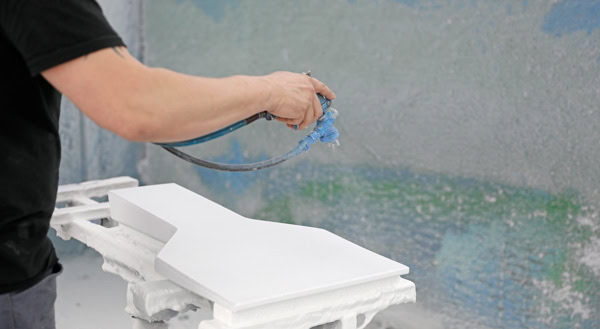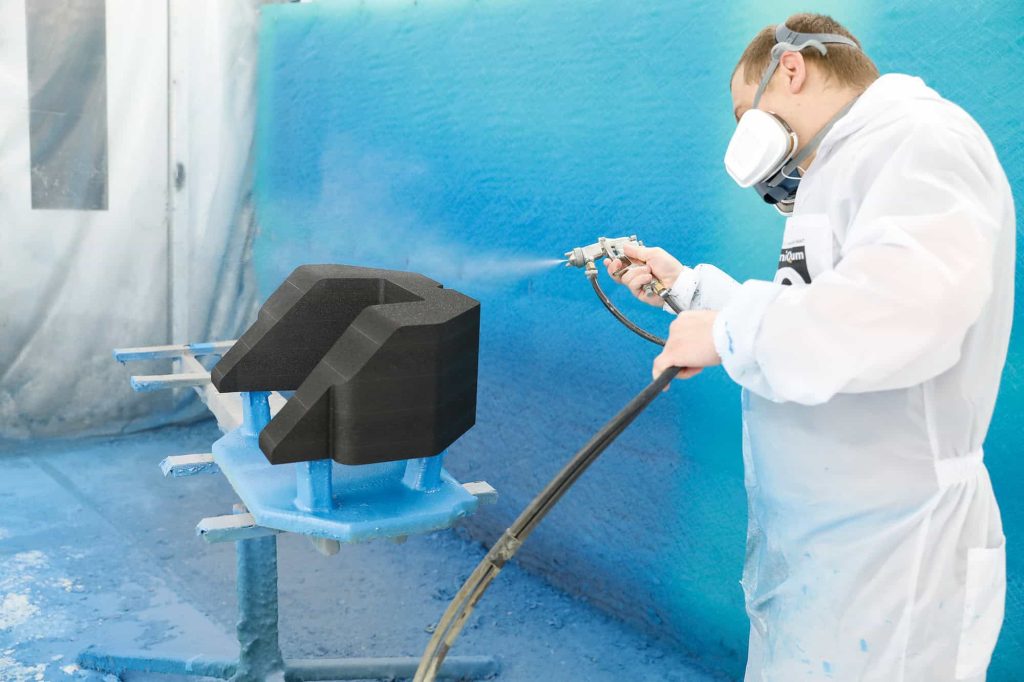Soft coating
What is a Soft Coating?

A soft coating is a flexible protective layer applied to materials to enhance comfort, grip, and protection. Unlike our hard coatings, which are primarily used for wear resistance and protection of hard objects, a soft coating provides a pleasant feel while maintaining the material’s flexibility. This makes a soft coating ideal for products that come into direct contact with the human body or where grip is important.
A soft coating can consist of various materials, such as silicone, rubber, or polyurethane. These coatings are widely used to give materials a soft, comfortable finish. Depending on the application, a soft coating can have additional properties, such as anti-slip, water repellency, or shock absorption. This makes soft coatings widely applicable in various sectors, from consumer electronics to sports equipment and industrial products.
Application of Soft Coatings in Various Sectors
While soft coatings are often used in the medical field, they also play an important role in other sectors. In the sports and fitness sector, soft coatings are applied to various products to improve grip and comfort. This ensures that consumers have better grip during their sport, which is essential during intensive use.
In the automotive industry, soft coatings are used on dashboards, steering wheels, and gear shifts. They exude luxury and also prevent surfaces from feeling slippery. Additionally, a soft coating ensures that materials are less likely to be damaged and are more resistant to wear.
Soft coatings are also commonly applied in the electronics industry. Smartphones and laptops are examples of this. These products often receive a rubber-like finish to provide a more pleasant feel and improve grip.
Different Types of Soft Coatings
Soft coatings are available in various materials, depending on the application. One variant is the silicone coating, but polyurea coatings and PU coatings are the most popular and common types of coatings. These soft coatings are often used on textiles, leather, and plastics to provide a flexible and durable protective layer.
Additionally, there are rubber coatings, which are mainly used for products where grip and anti-slip are important. A soft coating on tools, sports equipment, and car interiors prevents slipping and provides extra safety. Some soft coatings even contain antibacterial agents, making them suitable for hygienic applications such as in the hospitality industry or public spaces.

Advantages of a Soft Coating
A soft coating offers numerous benefits, depending on the application and the material to which it is applied. One of the biggest advantages is extra comfort and improved grip. Because a soft coating can have a rubber-like or silicone finish, it feels more pleasant in the hand and prevents slipping.
Advantages of a Soft Coating for Protection
A soft coating improves the protection and lifespan of products. The flexible and shock-absorbing characteristics ensure that materials are less likely to be damaged. This is important for vulnerable electronic devices, toys, and industrial tools used under harsh conditions.
A Soft Coating Offers Many Functional Advantages
Finally, a soft coating offers many additional functional advantages, such as water resistance, heat resistance, and antibacterial properties. This makes a soft coating versatile and suitable for a wide range of sectors, from sports and fashion to industry and the medical sector.